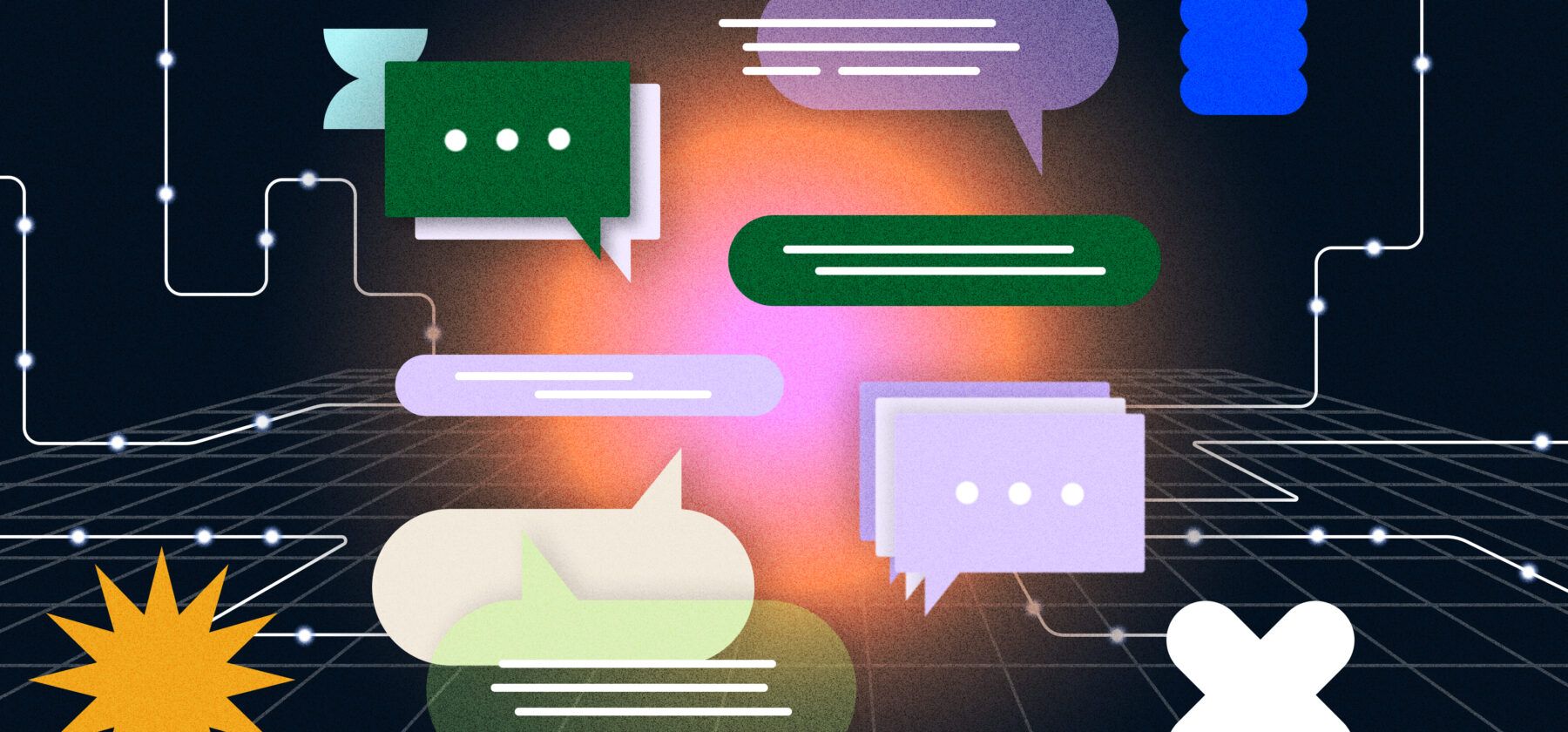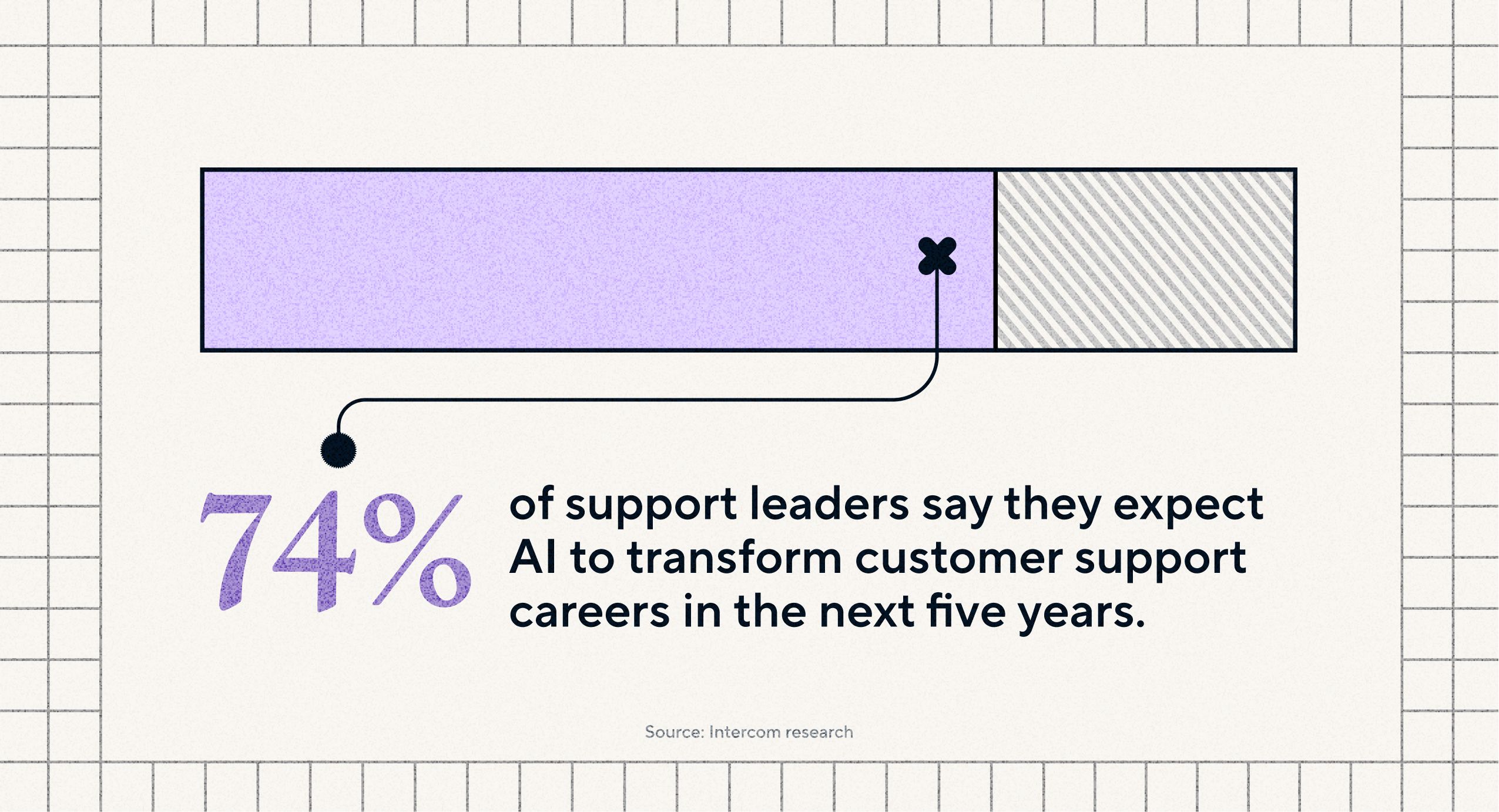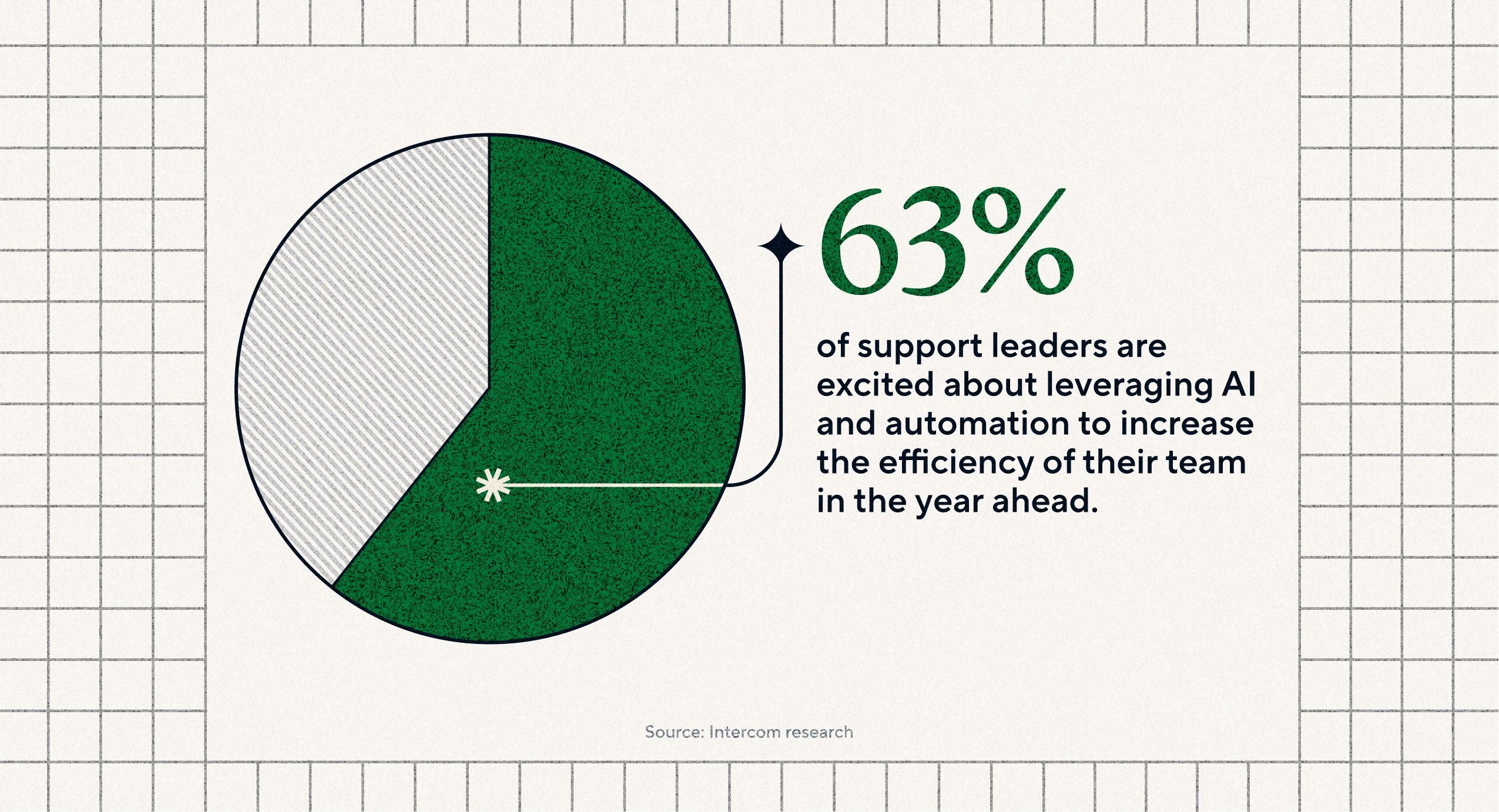
What will the future of customer service look like? We asked 400 CS professionals to find out
We recently shared some early insights from our research into the effects of AI on customer service. Given how fast the industry is changing in the wake of these technological advancements, we wanted to share more of the learnings that we’ve gotten from more than 400 support leaders in North America to help support teams take advantage of this monumental opportunity.
To understand the impact of AI on the customer service industry, we surveyed over 1,000 global support leaders and practitioners. We’ll be sharing our findings, along with actionable advice on how to leverage AI to gain a competitive edge and drive business growth, in our upcoming State of AI in Customer Service Report for 2023 (sign up to our newsletter so you don’t miss it 😉).
In the meantime, here are some insights we’ve gotten from respondents in North America:
- AI will completely transform support careers and create new opportunities for support reps
- AI has the potential to drive efficiency up – and support costs down
AI will completely transform support careers and create new opportunities for support reps
Let’s address the elephant in the room: is AI going to replace customer service teams? At this point, we’re confident that there’s no reason to be alarmed.
It’s common for any new technological advancement to bring a certain level of trepidation. Recently, Sam Altman, CEO of OpenAI – the company behind ChatGPT – specifically called out customer service as a big category that he believes can be “massively impacted” by ChatGPT. So it’s probably no surprise that just over half (51%) of support leaders say they’re worried about the potential negative impact of AI on the customer service industry.
But while Altman notes the potential for AI to negatively impact jobs, he also talks about the new possibilities it can unlock: “[These systems] will enhance many jobs and make them much better, much more fun, much higher paid, and they’ll create new jobs that are difficult for us to imagine even if we’re starting to see the first glimpses of them.”
“Automation has complemented human support teams, not replaced them – freeing them up to spend more time on impactful relationship-building work”
A recent parallel is automation. We’ve already seen how automation has helped support leaders and practitioners to save time, improve efficiency, and become more customer-centric. Our research supports this, showing that 64% of support leaders believe they’re already seeing value from their automation efforts.
In other words, automation has complemented human support teams, not replaced them – allowing them to spend less time on manual, repetitive admin and freeing them up to spend more time on impactful relationship-building work.
AI will do the same. Almost three-quarters (74%) of support leaders say they expect AI to transform customer support careers in the next five years. Many believe that AI will create new opportunities and roles for support reps, such as “chatbot developer” and “chatbot analyst.”

So while we may start to see a shift in what the role of “customer support rep” looks like, we predict these changes will ultimately create more rewarding opportunities for customer service practitioners – and allow them to focus on the work that only humans can do.
AI vs automation in customer service: what’s the difference?
Automation in customer service is the use of technology to perform repetitive tasks and processes. Examples of automation in customer service include simple chatbots, routing rules, and auto-generated article suggestions.
AI in customer service is the use of advanced machine learning or natural language processing tools to, for example, interpret more sophisticated queries and generate contextualized responses.
AI has the potential to drive efficiency up – and support costs down
After the economic uncertainty of the past few years, many businesses are laser-focused on ensuring they’re building strong foundations to help them stay resilient now and into the future.
To do this, support leaders are searching for ways to improve team efficiency, reduce costs, and ensure they’re seeing a strong return on investment on the tools in their customer support tech stack – and they’re looking to AI to help them do it.
“58% of support leaders say that they expect to reduce support costs over the next five years by adopting AI”
Our research shows that 63% of support leaders are excited about leveraging AI and automation to increase the efficiency of their team in the year ahead. This increased efficiency will have a positive impact on other areas, and support leaders anticipate that it will help them to save money in the long term: 58% say that they expect to reduce support costs over the next five years by adopting AI.

So how is AI going to help support teams save time and money? Here are three ways that support leaders see it improving efficiency:
- 42% believe that the most important efficiency gain will be the ability to offer 24/7 support, leveraging AI to automatically resolve more complex questions than ever before, using the knowledge that already exists in your help center.
- 36% think that providing faster support will be the biggest improvement to efficiency, with AI reducing the time it takes for support reps to craft the perfect message. With a leading AI-powered bot resolving the majority of issues in your support queue, your team can also be empowered to address queries that require a human touch even faster.
- 25% feel that AI will enable them to create better customer experiences by providing trustworthy sources for AI-generated replies and handing the hardest questions over to your support reps to reduce frustration.
Get ready for the future of customer service
The arrival of advanced AI technology like ChatGPT has taken the world by storm. What was once thought to be a far-off possibility is now right in front of us – it has arrived.
In our upcoming State of AI in Customer Service Report for 2023, we’ll share insights from more than 1,000 global support leaders and practitioners, along with actionable advice to empower you and your team to continue to drive business growth and in this new era of customer service.
The future is here. Are you ready?
Sign up to our newsletter so you don’t miss the full global report






